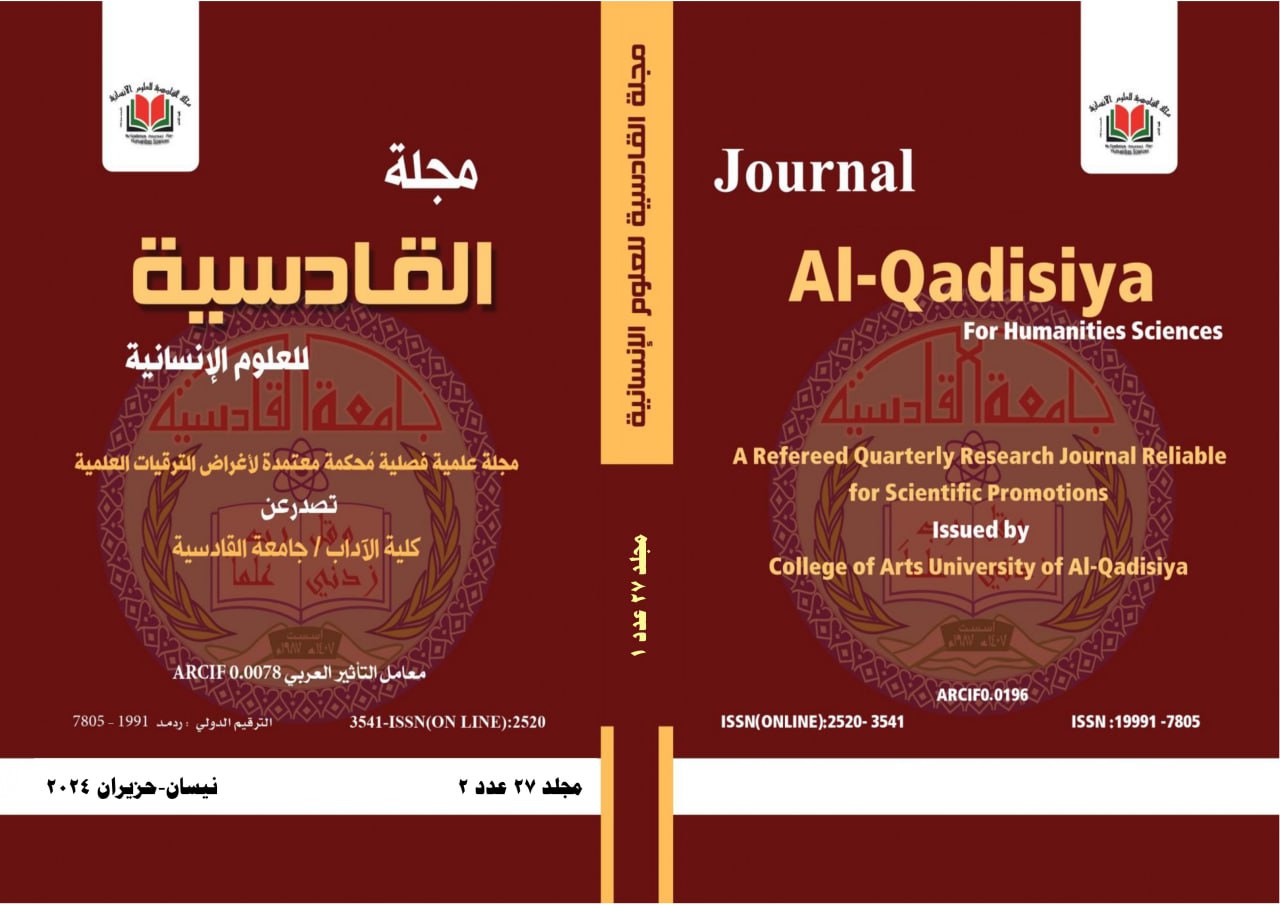Abstract
Abstract
The study of expressive speech acts has received a great deal of attention by linguists, philosophers, and researchers since they reflect psychological states of the speaker specified in the propositional contents. Each speaker may find himself /herself tending to express approbation many times daily about hearer's appearance, behaviour, skill…etc. ' Compliments ' are common features of everyday discourses due to their great number offered and received.
The present research aims at:
1. Examining the theoretical views adopted by linguists, philosophers, and researchers concerning:
a. Definitions, types, classifications and strategies of compliments speech acts.
b.The defining properties that distinguish compliments acts from other related acts.
c.The syntactic, semantic and pragmatic structures of compliments.
2. Arriving at different and to some extent new theoretical views from those presented in (1) especially those concerned with syntactic and pragmatic structures
The study of expressive speech acts has received a great deal of attention by linguists, philosophers, and researchers since they reflect psychological states of the speaker specified in the propositional contents. Each speaker may find himself /herself tending to express approbation many times daily about hearer's appearance, behaviour, skill…etc. ' Compliments ' are common features of everyday discourses due to their great number offered and received.
The present research aims at:
1. Examining the theoretical views adopted by linguists, philosophers, and researchers concerning:
a. Definitions, types, classifications and strategies of compliments speech acts.
b.The defining properties that distinguish compliments acts from other related acts.
c.The syntactic, semantic and pragmatic structures of compliments.
2. Arriving at different and to some extent new theoretical views from those presented in (1) especially those concerned with syntactic and pragmatic structures
